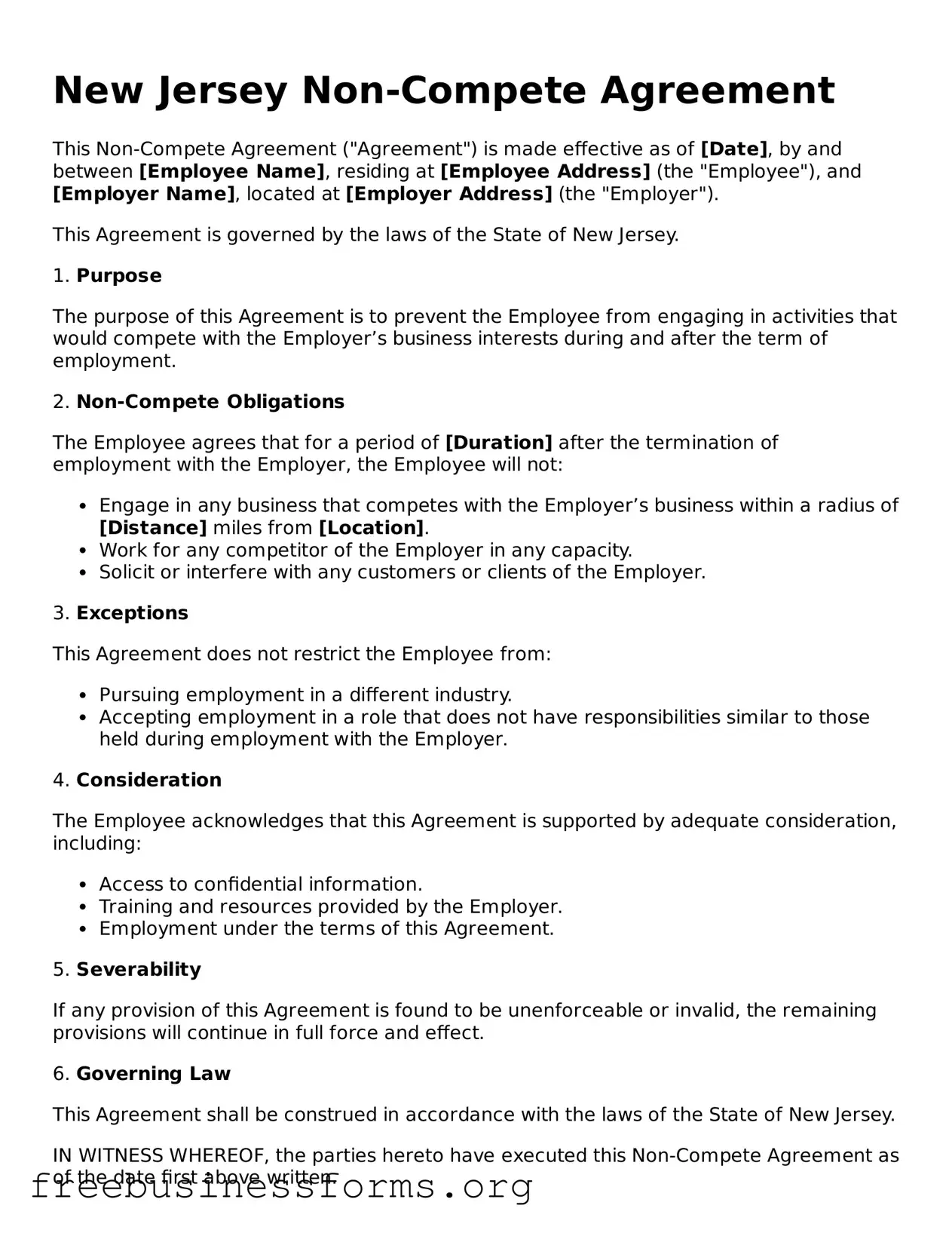Blank Non-compete Agreement Template for New Jersey
A New Jersey Non-compete Agreement is a legal document designed to protect a business's interests by restricting an employee's ability to work for competitors after leaving the company. These agreements help maintain a competitive edge by preventing the sharing of sensitive information and trade secrets. Understanding the nuances of this form is essential for both employers and employees to navigate their rights and responsibilities effectively.
Open Form Here

Blank Non-compete Agreement Template for New Jersey
Open Form Here

Open Form Here
or
↓ PDF File
Quickly complete this form online
Complete your Non-compete Agreement online quickly — edit, save, download.